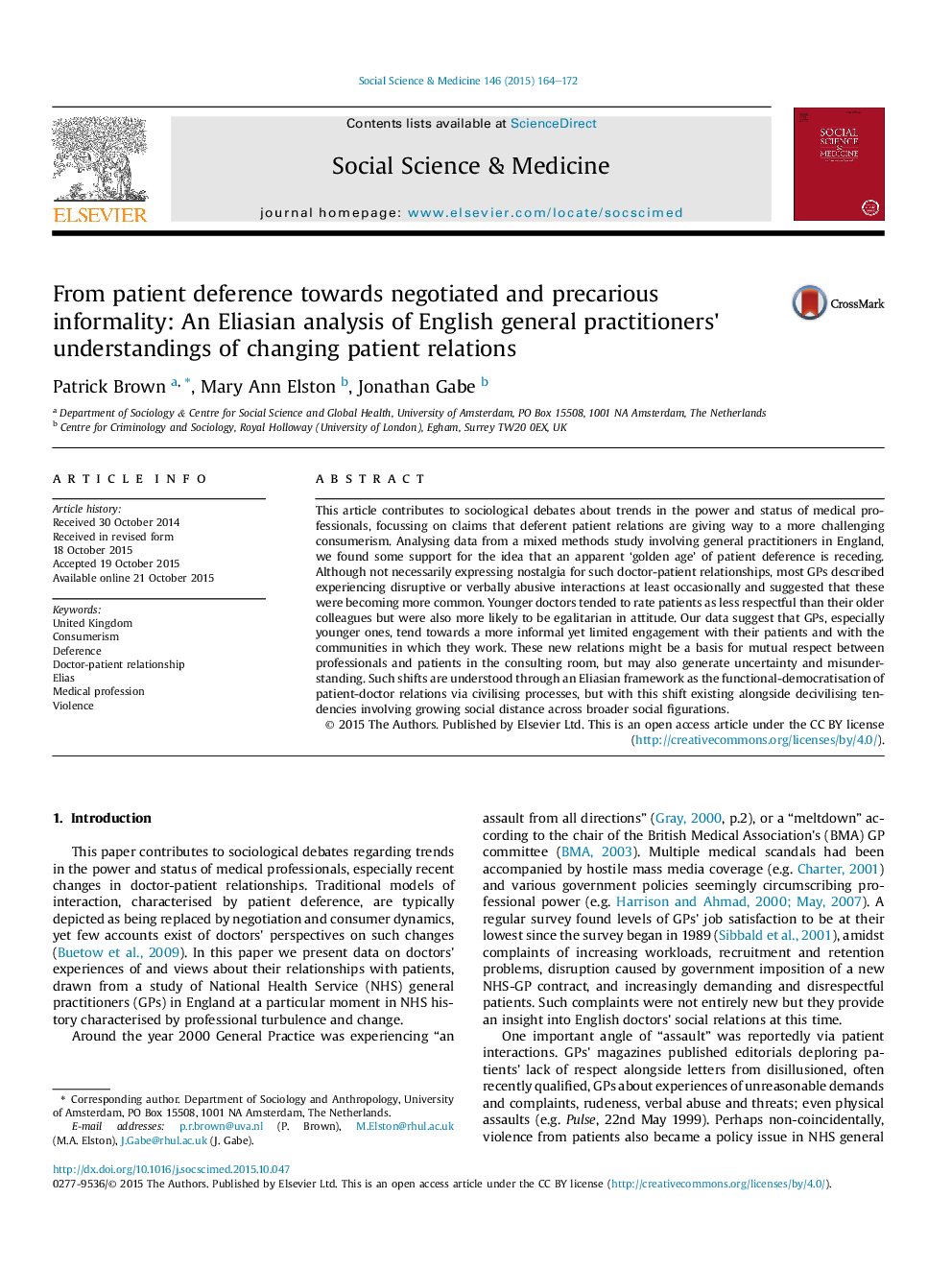| Article ID | Journal | Published Year | Pages | File Type |
|---|---|---|---|---|
| 7331617 | Social Science & Medicine | 2015 | 9 Pages |
Abstract
This article contributes to sociological debates about trends in the power and status of medical professionals, focussing on claims that deferent patient relations are giving way to a more challenging consumerism. Analysing data from a mixed methods study involving general practitioners in England, we found some support for the idea that an apparent 'golden age' of patient deference is receding. Although not necessarily expressing nostalgia for such doctor-patient relationships, most GPs described experiencing disruptive or verbally abusive interactions at least occasionally and suggested that these were becoming more common. Younger doctors tended to rate patients as less respectful than their older colleagues but were also more likely to be egalitarian in attitude. Our data suggest that GPs, especially younger ones, tend towards a more informal yet limited engagement with their patients and with the communities in which they work. These new relations might be a basis for mutual respect between professionals and patients in the consulting room, but may also generate uncertainty and misunderstanding. Such shifts are understood through an Eliasian framework as the functional-democratisation of patient-doctor relations via civilising processes, but with this shift existing alongside decivilising tendencies involving growing social distance across broader social figurations.
Related Topics
Health Sciences
Medicine and Dentistry
Public Health and Health Policy
Authors
Patrick Brown, Mary Ann Elston, Jonathan Gabe,
